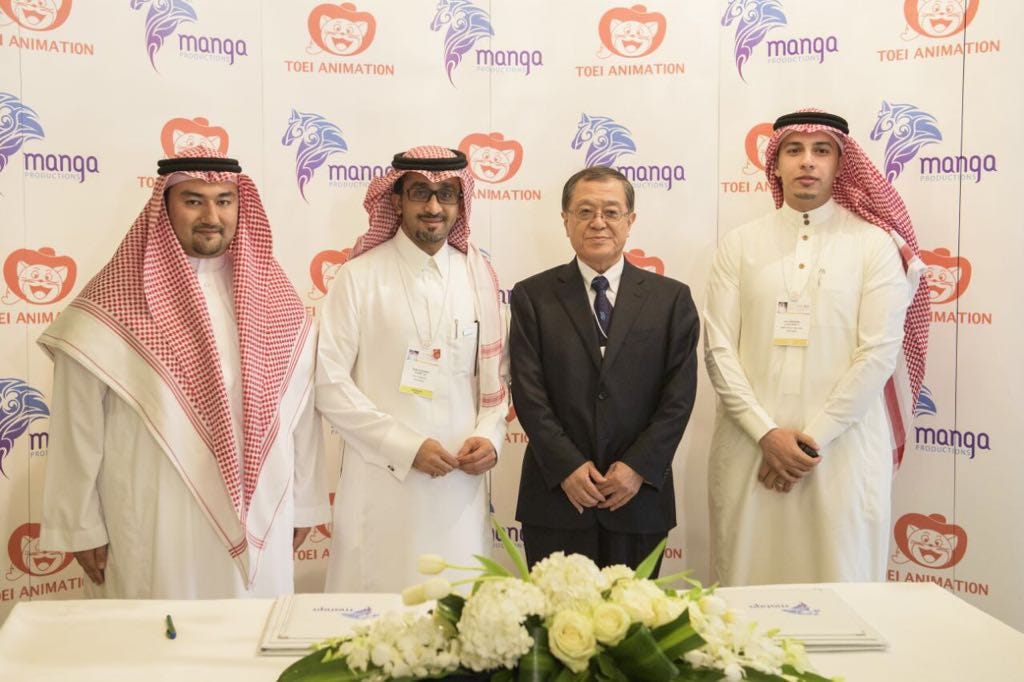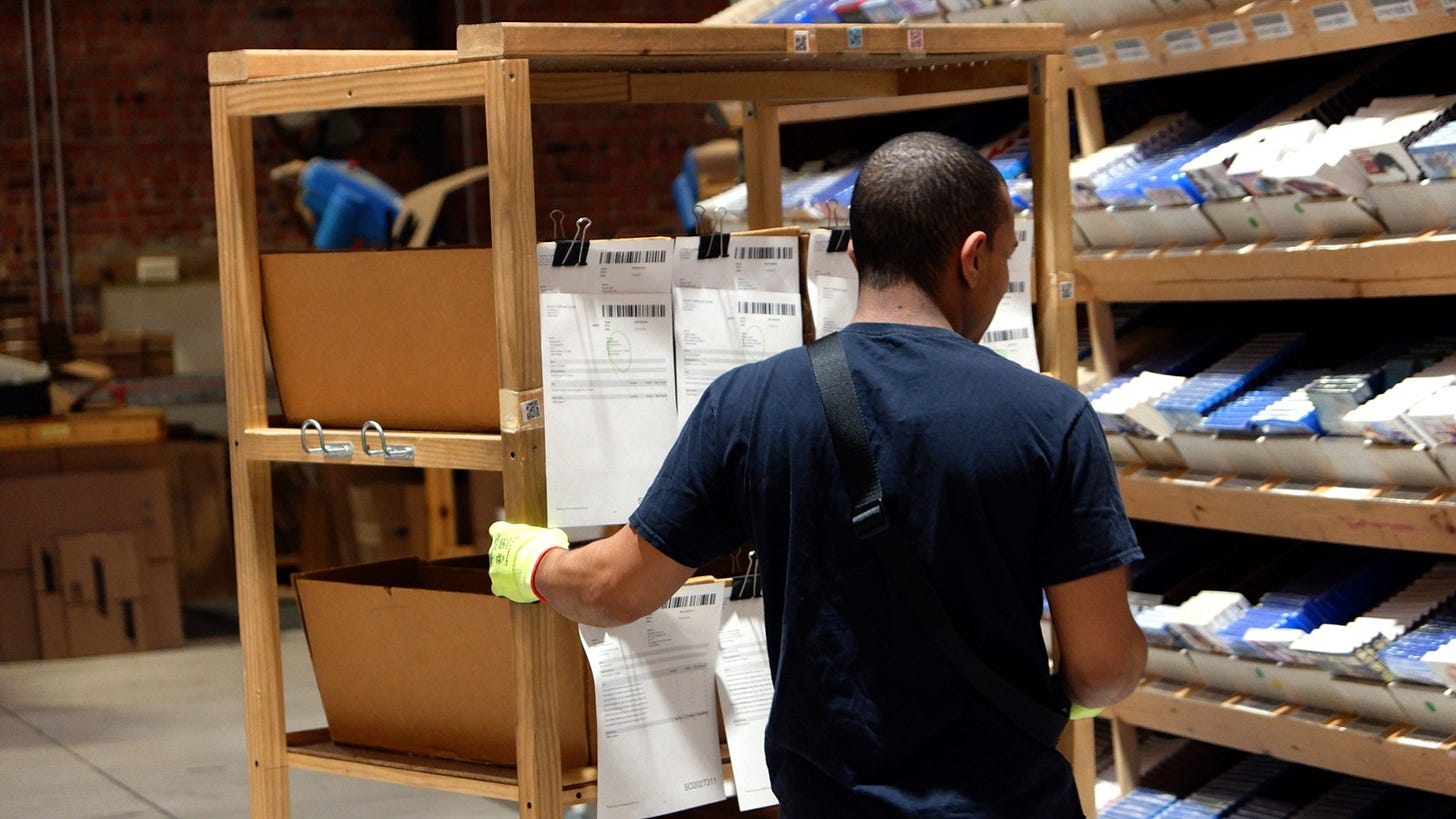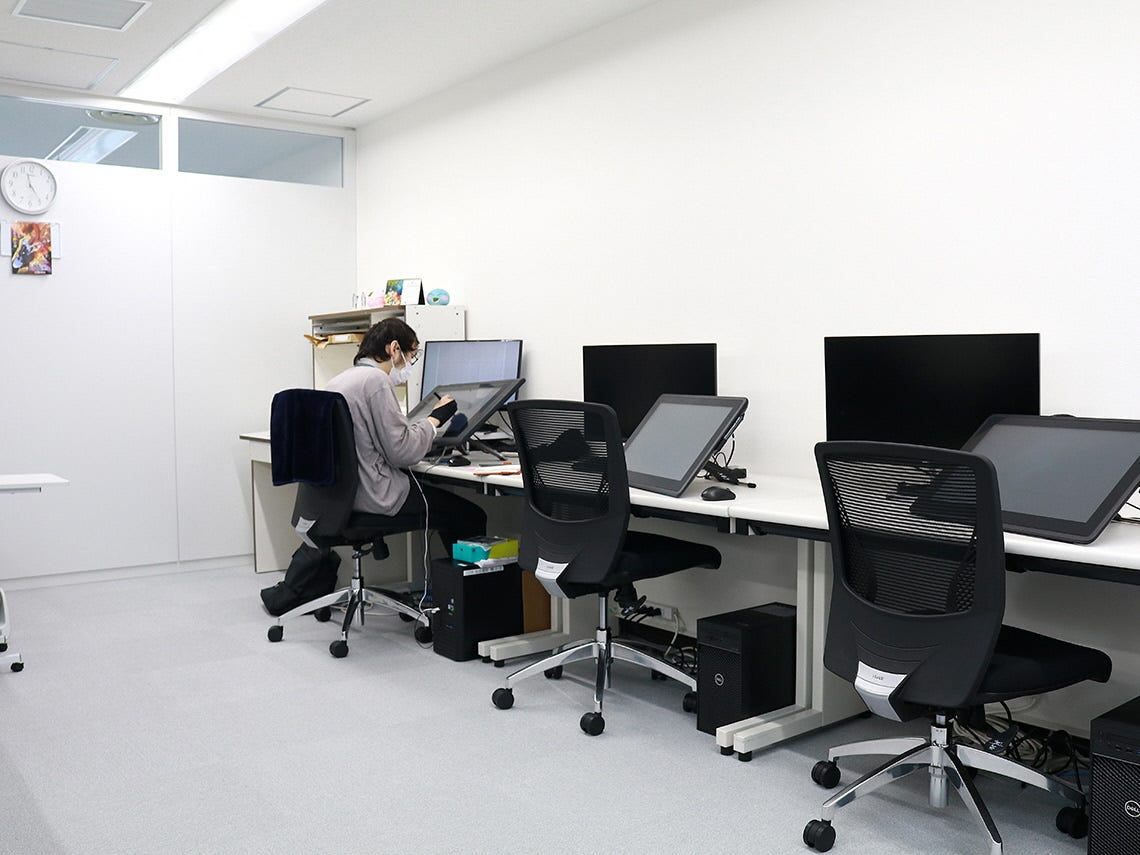Anime industry tackles inflation with raises
Plus: Saudi Arabia's journey into anime production; A thriving anime Blu-ray and DVD market in the U.S.; Japan's rural animation studios; and more
This is your weekly Animenomics briefing, covering the business of anime and manga. Today is Wednesday, April 19, 2023, and this is our biweekly anime edition.
In case you missed it: Tourists visiting Japan will see prices for the Japan Rail Pass rise more than 65 percent in October.
Employers confront labor shortage, inflation with salary increases

Faced with a labor shortage and record-high inflation, large anime and video game companies are giving raises. TV Tokyo, TMS Entertainment, Nintendo, and Square Enix are among employers that have increased pay since the beginning of the year.
The big picture: Japan reported its highest consumer inflation rate in 41 years in January, and workers aren’t getting paid enough to keep up with rising prices.
Real wages, which measures workers’ earnings adjusted for inflation, declined for the 11th straight month in February.
The details: TMS Entertainment revamped its compensation structure, raising the base salary for existing employees by an average of 30 percent. The new graduate starting salary increased by 24 percent.
TV Tokyo, which reported a strong third quarter thanks to its anime business, is raising the new graduate starting salary by 10 percent.
Some context: New graduates are mainly hired by animation studios for production management, sales, and clerical work.
Anime producers find investment partners in Saudi Arabia

Saudi Arabia is forming partnerships to produce and distribute anime in the country. This is good news for Saudi fans of anime, but it also risks Japanese companies being pulled into sensitive geopolitical issues.
Why it matters: The Middle East is an emerging overseas market for anime. Most countries in the region see fewer than 10 works licensed for their markets in a given year, according to the Association of Japanese Animations.
Latest developments: Saudi media conglomerate MBC Group is the latest to invest in anime productions, joining hands with American manga publisher Tokyopop.
“Anime and manga are incredibly popular in the Middle East and North Africa, with Saudi Arabia being the leader in terms of viewership in the region,” said CEO Sam Barnett in a press statement.
The company operates Shahid, the largest streaming video platform in the Middle East and North Africa.
Last December, MBC Group secured exclusive rights for Shahid to broadcast popular shows such as One Piece and Bleach in the region.
What to watch: A new Center for Strategic & International Studies report says anime co-productions are helping Saudi Arabia export its narrative throughout the Middle East and beyond.
The Journey, a 2021 anime film drawn by Toei Animation and co-produced with Manga Productions, portrays a legendary pre-Islamic battle in the Arabian Peninsula.
Manga Productions is owned by a foundation sponsored by Saudi Crown Prince Mohammed bin Salman, whom the United States allege authorized the killing of Washington Post journalist Jamal Khashoggi in 2018.
Clippings: A bright spot in the anime home video market

Anime Blu-rays and DVDs are thriving in the United States, bucking the general trend of declining home video sales and more streaming options. (Polygon)
Muse Communication faces controversy after the Taiwanese distributor’s subsidiary aired an episode of In/Spectre that included comments by an Indonesian translator about sex involving underage children. (The Indonesian Anime Times)
Mobile Suit Gundam: The Witch from Mercury’s Gundam Aerial, the first Gundam robot piloted by a female protagonist, has the highest initial sales for a High Grade plastic model of any lead Gundam. (Bandai Namco News)
Director Makoto Shinkai’s Suzume has earned more money in the Chinese box office than in Japan, a first for a Japanese film earning at least ¥10 billion domestically. (Kyodo News)
Film conglomerate Toho is positioning its anime production and sales label as a new, fourth business pillar to further drive growth following a strong close to its fiscal year. (Animation Business Journal)
Symposium discusses increasing decentralization in anime production

More and more anime studios have set up shop outside of Tokyo over the past decade, but a shortage of human capital, inconsistent production quality, and the lack of local government support continue to pose challenges for anime production in Japan’s rural prefectures.
The details: A symposium held during the inaugural Niigata International Animation Film Festival last month discussed the current and future states of decentralization in anime production.
Niigata Animation CEO Masayuki Uchida says his company does subcontract work for other animation studios. They rely on a studio in Tokyo to provide human resource development.
Students at vocational schools in the countryside lack the practical knowledge to be able work immediately at an animation studio upon graduation.
Companies establish branch offices outside Tokyo often because of executives’ personal connections to the region or prior business relationships, not because of government incentives.
Opportunities for remote work will likely continue into the future given past digitization efforts and the effect of the COVID-19 pandemic.
Zoom out: A survey done by the Association of Japanese Animations in 2020 found that, out of 811 companies involved in anime production, 14.7 percent were based outside the Tokyo metropolitan area.
A previous survey in 2016 counted 622 anime production companies, 12.9 percent of them located outside Tokyo.
Japan’s first anime studios were based in Tokyo, and many production studios today are located in the city’s Suginami and Nerima wards.
If you enjoyed reading this newsletter, consider forwarding it to friend. As always, you can reply by email with questions, comments, and feedback. See you next week for our next issue!


